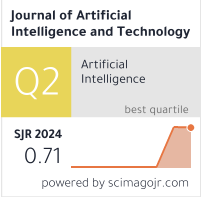Enhancement of Prediction Model for Students’ Performance in Intelligent Tutoring System
DOI:
https://doi.org/10.37965/jait.2024.0319Keywords:
enhancement prediction, intelligent tutoring system, student model, students’ performanceAbstract
Adapting artificial intelligence to intelligent tutoring system (ITS) has made teaching and learning more effective. Prediction of students’ performance has gained more interest among researchers to know whether the students master their learning before moving to another topic. For the research scope, we have analyzed numerous Bayesian Knowledge Tracing (BKT) variations in methodology and found that the most precise way to forecast students’ success is through Individualized Bayesian Knowledge Tracing (iBKT). Although iBKT makes a good prediction, iBKT does not consider other knowledge-related elements, such as learning and guess rate and only uses students’ prior knowledge as the parameters. Due to issues concerning uncertainties in students’ interactions, this study proposes to enhance the prediction function of the iBKT using a feature relating to students’ confidence levels. Thus, this new confidence parameter is defined as P(C), assumed to improve prediction accuracy when forecasting student achievement. The prediction accuracy is tested using the attributes of the ASSISTment and Knowledge Discovery and Data Mining (KDD) datasets as input. In addition, root mean square error (RMSE) is applied to calculate the performance accuracy of iBKT and enhanced iBKT with the confidence parameter. As a result, the RMSE performance accuracy of iBKT with the confidence parameter shows a low RMSE score for both datasets. The ASSISTment dataset provides a higher prediction when applying the confidence parameter, 0.21190. Therefore, it is concluded that enhancing the confidence parameter is an effective method with accuracy improvement for predicting students’ success in ITS.
Published
How to Cite
Issue
Section
License
Copyright (c) 2024 Authors

This work is licensed under a Creative Commons Attribution 4.0 International License.





